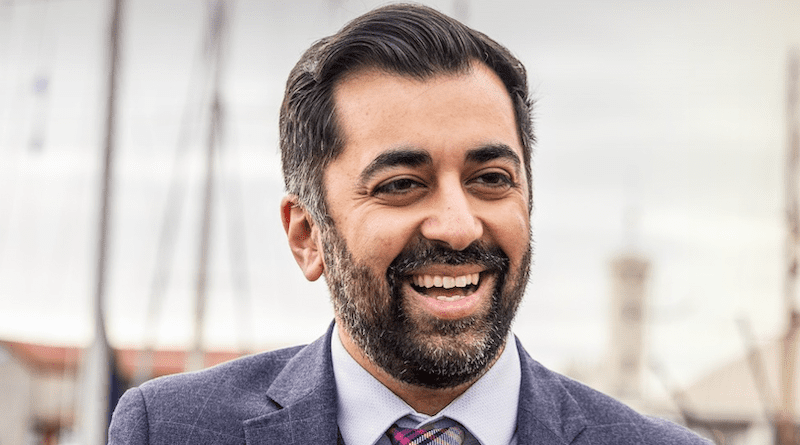Scotland First Minister: Humza Yousaf Offers Further Proof Muslims Can Succeed In Britain – OpEd
By Arab News
By Dr. Azeem Ibrahim*
Humza Yousaf has been elected leader of the majority party in Scotland, the Scottish National Party. On Wednesday, he was sworn in as first minister of Scotland, the leader of one of the most powerful devolved governments in the developed world.
And there is something about him that did not come up much at all in the election campaign. Something that might, in the bad old days, have kept him from high office. But not any longer. Yousaf is a Muslim, a proud Muslim who took his parliamentary oath first in English and then in Urdu.
He is proof that, whatever other challenges we face, Muslims in Britain are able and willing to achieve great things. This is a success story of modern Britain that is often unnoticed. But it should be more commonly understood. It is something that ought to inspire hope and optimism across the world.
Yousaf has long been one to watch: as a junior minister, as minister for justice and most recently as minister for health, people have long said he was destined for great things.
In his youth, Yousaf won awards from Scottish minority ethnic organizations attempting to identify tomorrow’s leaders. In him, they were surely correct.
Yousaf was elected to the Scottish parliament in 2011, at 26 years old. He was the youngest ever MSP at that time and, once he was elected, he was promoted rapidly. He served as a political secretary for his party’s leaders and began very quickly to occupy junior ministerial offices.
That he could do so — and so young — speaks very well of modern Scotland. It is a country where future political talent can be identified and nurtured, and brought out, regardless of the religion of the politician. This is something that has not always been true. It is a good thing that it now is.
Yousaf has spoken about the prejudice he faced as a boy and a young man. He still faces prejudice today and we must not look past it and pretend that all is well.
But Yousaf’s story still ought to inspire. Born in Glasgow to a father from Punjab and a mother from Kenya, Yousaf would never have had a chance of political advancement in the Scotland of the past: a Scotland of bigoted nationalism and blinkered dislike of outsiders. This century, however, Scotland and Britain have only become more diverse and more accepting.
UK Prime Minister Rishi Sunak is a Hindu. In the bad old days of the past, he would never have been elected. And even if he was elected, his religion and family would not have passed without critical comment of some kind. Now, though, these things are not only not commented upon, but Sunak is able to celebrate Diwali and to talk about his background with pride, in the full knowledge that it is not an impediment.
We can hope, with full confidence, that the same will be true for Yousaf — that his background, which was never an issue during this campaign, continues to be only a source of strength for him and not a tool for a small and increasingly marginalized minority of bigots.
Yousaf’s story is also Scotland’s story and I would like to dedicate some time to that now. Scotland is less diverse than much of Europe, but it — like the rest of the UK — is one of the most tolerant places in the world.
Scottish Muslims are world-leading academics, the leaders of major companies, significant athletes, scientists and entertainers. To be able to have the first minister join those ranks is a pleasure and a thrill for those of us who have campaigned for the success of Scotland’s Muslims.
This is the greatest possible vindication of that campaign: that Scotland’s Muslims can be proudly Muslim and successful in Scotland; they do not need to pretend to be something they are not to reach high office and to win.
Just as the country benefits from the talents of all its members, individuals can only benefit from being able to reach the heights of where their aspirations and talents can take them.
This is a time of great flowering for Muslims in Britain. As it is for British Asians, who include among their number the prime minister, the first minister of Scotland and the mayor of London — all of whom represent different parties.
This is a very British story, a great success story — a story which deserves, this month of all months, to be told.
- Dr. Azeem Ibrahim is director of special initiatives at the Newlines Institute for Strategy and Policy in Washington, DC, and the author of “The Rohingyas: Inside Myanmar’s Genocide” (Hurst, 2017). Twitter: @AzeemIbrahim

